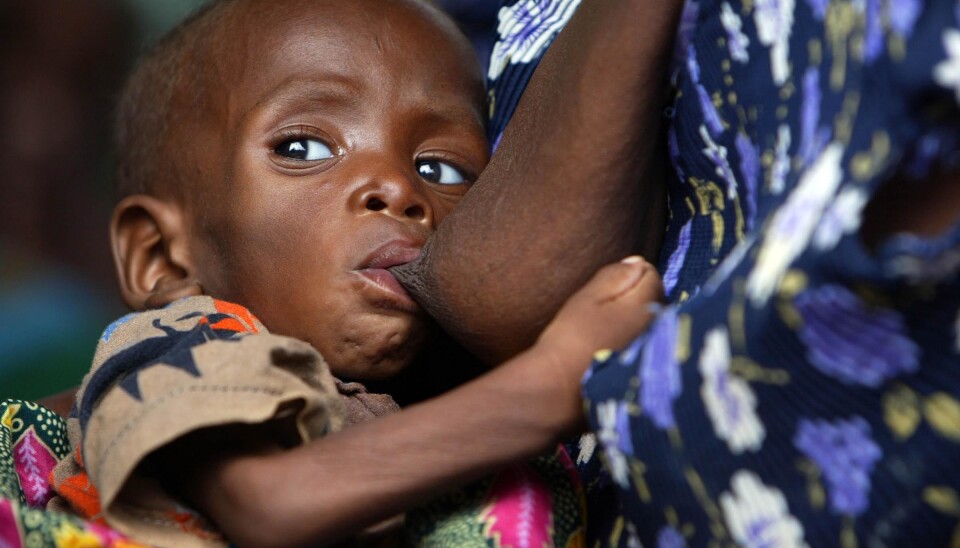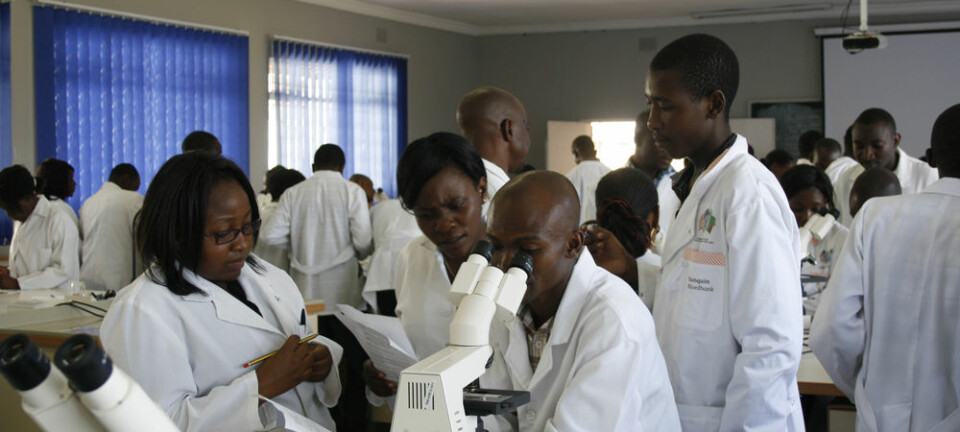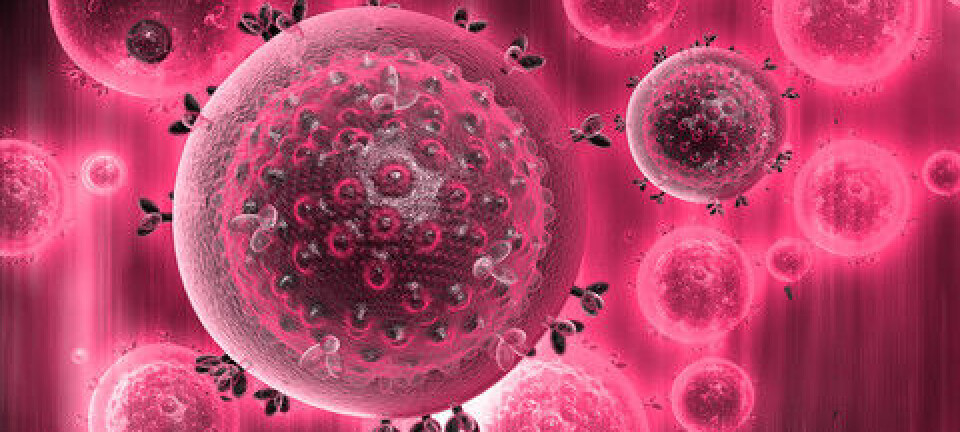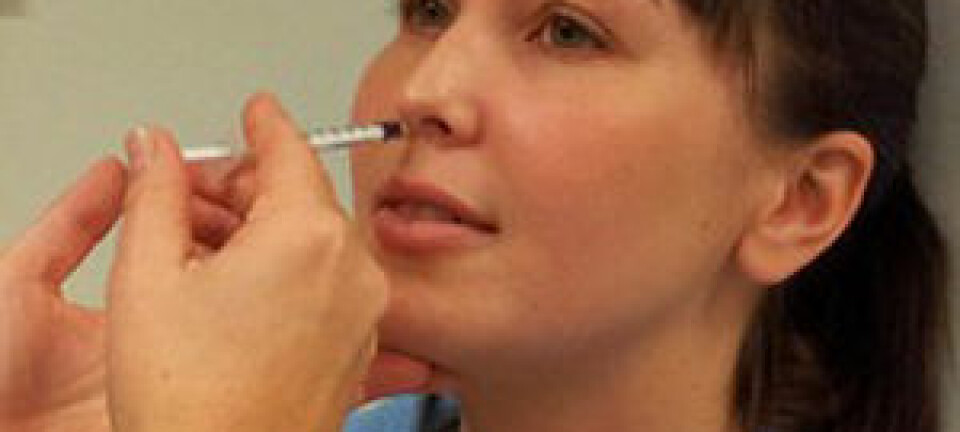This article was produced and financed by University of Bergen

HIV-preventive drugs for breastfed infants
Drugs may reduce the risk of mother-to-child transmission of HIV during breastfeeding.
Denne artikkelen er over ti år gammel og kan inneholde utdatert informasjon.
An estimated 420,000 children are infected with HIV every year. About half of these are infected via HIV-positive mothers.
This occurs almost exclusively in low-income countries.
So far, this type of infection of children has been considered an unsolved problem.
“If no measures are in place, between 30 and 45 percent of children of HIV-positive mothers in Africa will contract the HIV virus,” says Professor Thorkild Tylleskär at the Centre for International Health at the University of Bergen (UiB) in Norway.
Tylleskär is a specialist in maternal and child health and has worked on HIV-preventive measures in low-income countries for a number of years.
During both pregnancy and breastfeeding
“Half of the children are infected late in the pregnancy or during labour,” says Tylleskär.
“The other half is infected during breastfeeding.”
Due to the study "PROMISE PEP: Prevention of mother to child transmission of HIV", which took place in the period of 2008–2013, the researchers may have found a solution.
Professor Tylleskär presented the results from the study at the Conference on Retroviruses and Opportunistic Infections (CROI) in Boston, USA, earlier this month.
“Anti-retroviral drugs are the most common when treating or preventing HIV infection,” Tylleskär explains.
“After all, HIV is a so-called retrovirus. Hence the name," he says.
There are around 20 medications in use for treating HIV infection, and most patients receive a cocktail of several drugs.
Promising results
The study shows that two specific medicines may prevent the child from HIV infection during breastfeeding: Lopinavir/ritonavir (LPV/r) and lamivudine (3TC).
A randomised, controlled trial was conducted, where the effect of these two drugs was compared.
Children received medication twice daily from seven days of age and until breastfeeding ended, alternatively until week 50.
Only 1.5 percent of the children contracted HIV in their first year of life. This is considered a good result.
“As long as we do not control the HIV epidemic among adults, drugs like this can be very useful,” says Tylleskär.
“It is difficult to find appropriate medications for such treatment and to avoid side effects that may harm the child.”
In the study, researchers examined 1,273 children who were breastfed by HIV-infected mothers in Burkina Faso, Uganda, Zambia and South Africa.
Disagreement about breastfeeding
For the past 15 years, doctors have understood that infection is preventable if the mother receives anti-retroviral drugs during pregnancy and birth.
In Scandinavia this has been implemented into the healthcare system, but in countries with a less developed system it is still a challenge in getting mothers to take their medication on a regular basis.
Researchers have disagreed about how to act during the breastfeeding period.
"In Scandinavia we have not allowed the [HIV-infected] mothers to breastfeed the child, and this has worked well,” Tylleskär says.
In Africa, the same method has been applied, but this caused problems. In 2006 in Botswana there was a terrible epidemic of gastroenteritis among non-breastfed infants, with over 50,000 hospital admissions and where 600 infants died.


































